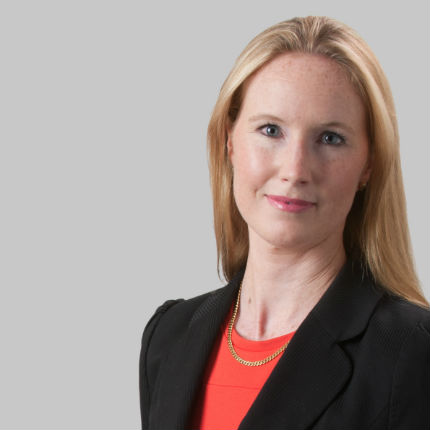Interview: Kate Hodson of Ogier on ESG
ESG is all the rage in the investment community and many funds are being launched or refashioned with an ESG label on them. HFC’s Stefan Nilsson had a chat with Kate Hodson in Hong Kong to find out the latest in the ESG field. Kate is Partner and Head of ESG (Legal) at the Hedge Funds Club’s long-standing partner Ogier.
ESG is now very much on-trend. What has been the catalyst that triggered this flood of funds, investors and corporates actually doing ESG investments?
It’s a mix of factors coming together – greater awareness amongst investors of the issues comprised within the broad matrix of ESG factors and how these may impact returns in the long term. A heightened collaboration between investors to drive change including through activism and requests for ESG policies and reports. A focus on the issue of climate change and governments stepping up their actions to move towards a low carbon economy. We can expect this to have a material impact on the investing landscape over the coming decades, including as a result of policy and regulatory changes. With changing consumer sentiment, new technologies and governments transitioning to a low carbon economy, we are also seeing a rise in opportunities for adopting ESG strategies (i.e. beyond just risk considerations). Covid has also given a further push to the ESG momentum. With this momentum, managers are in no doubt wary of not being left behind and this becomes self-propelling to some degree. However, we also need to be conscious that there is probably more hype than there is a tangible change to the way we are investing today. In Asia, I don’t get the impression that a lot of our asset manager clients are consistently getting questions on ESG or if they are, that this goes beyond some relatively high-level DD checks. So, we need to be realistic about how far we have come and the extent of the demand for ESG in Asian markets.
ESG is massively hyped up now, but how can this interest turn into real and lasting practices?
The hype can be both beneficial but also to some extent, unhelpful. On the one hand, it has likely helped drive momentum and put ESG on the agenda for many asset managers. If it hadn’t been for this momentum then we likely wouldn’t have all the ESG data that has been gathered and the various ESG tools and standards that have evolved, in such a short space of time. On the other hand, the hype has helped push some misconceptions about ESG. For example, claims of outperformance have perhaps put some unrealistic expectations on what ESG can deliver (at least in the short term). These claims have been called premature by some academics and others have referred to there being an “ESG bubble”, inferring that this could burst. But we have to question whether ESG should need to deliver outperformance for it to make sense (the hype has taken us to this point very quickly). Shouldn’t comparable performance be sufficient? Eventually, I would expect the hype to settle and some clear lasting practices will evolve. We’ve already seen that regulation is now coming in at the back-end, pointing to some lasting changes. Where we need to end up is moving beyond treating sustainability as a trade-off or as a portfolio constraint to be managed. That means ensuring that sustainable factors are incorporated and integrated into the asset allocation process, at the beginning of the investment cycle through future asset-price forecasting and asset-class universe selection.
You have been with Ogier for a long time, working with fund managers on the establishment and structuring of hedge funds and private equity funds as well as advising investors on their fund investments. More recently you founded Ogier’s Sustainable Investing and Impact Funds practice and you were appointed as the firm’s Head of ESG. What was the driver behind this new ESG focus for you as a lawyer?
Yes, I’ve been working with Ogier as a funds lawyer for 11 years in Hong Kong. Having been with the firm for such a long time helped me to get the buy-in I needed to take this forward. I was very committed to the topic and knew that having a greater understanding of the historical and legal development of global environmental policy and regulation would help me go deeper in advising my asset management clients on their sustainable investing journey. I was also just genuinely interested to learn more. In terms of integrating ESG into our legal work, it was clear that there would be a demand for this expertise and as a firm, we wanted to go beyond just paying “lip-service”. Fortunately, we have a significant number of lawyers keen to build on their legal expertise to advise clients on new ESG products across banking, corporate, funds and private wealth. The vision was not just to interweave this into our legal practices but also to complement the offering with a specialist, technical consultancy practice, housed within Ogier Global. Having sustainable finance experts to call upon is certainly proving very helpful to us and our clients.
You also went back to school to study Energy and Environmental Law at the Chinese University of Hong Kong. What makes a mid-career professional who is a law firm partner go back to school?
I didn’t want to enter the world of sustainable investing solely off the back of my passion and interest. I wanted this to be a credible next step and one which equipped me for the work I wanted to be doing in the funds space. I had the option to do the Masters part-time but I chose full time because I could see how quick the market was moving on all this. It was certainly very demanding to juggle working as a partner during the day and as a law student by night and on the weekends. But the learning was fantastic and it was a good way to get myself thinking about my practice more creatively.
There is a fair amount of greenwashing and other ESG-related window dressing going on. How can investors ensure that they invest in ESG done properly?
Investors need to be very clear on what they are looking for when they seek out “ESG”. Integrating ESG into the investment process does not necessarily mean making a measurable difference to environmental or social factors. So, you have to ask the right questions and know what you are looking for. Is this just about better risk management, a commitment to a more responsible way of investing, investing for some level of impact or something else? Asset managers will need to get better at disclosing what approach to ESG investing they are taking and if they have ESG objectives, that those objectives are defined and reported against. Investors can do their bit by challenging this delivery. Regulators are of course also stepping in to try and weed out bad habits and protect against inflating environmental or green credentials. We have taxonomies emerging which provide a roadmap to what can be considered green, but investors do need to educate themselves and be discerning when it comes to investing with managers off the back of ESG statements.
From a legal point of view, what are the major risks for fund managers launching ESG funds?
It’s the typical risks, keeping up with regulation, ensuring that the fund’s strategy, objectives and risks are clearly and transparently communicated to ensure no misrepresentation is made. The term “ESG fund” does not denote any one approach to investing and is open to interpretation. We don’t have a precise list of the factors that should be encompassed within the broad term “ESG”. Therefore, a very clear description of what ESG means to the manager and what they are attempting to deliver needs to be set out. ESG funds may face greater levels of regulation such as what we are beginning to see in Europe and this can increase the cost base. On the investing side, the risks may relate to the lack of data and the difficulty of interpreting that data in a meaningful way. Will analysts get blinded by high ESG scores that might overshadow other key risks within a company? How will decisions be made between competing ESG factors? There really is a lot to consider. Our consultancy side of the firm is working with asset managers who are looking to work through these issues, to challenge approaches to ESG integration and to assist them to develop their own belief statement on the topic of ESG.









